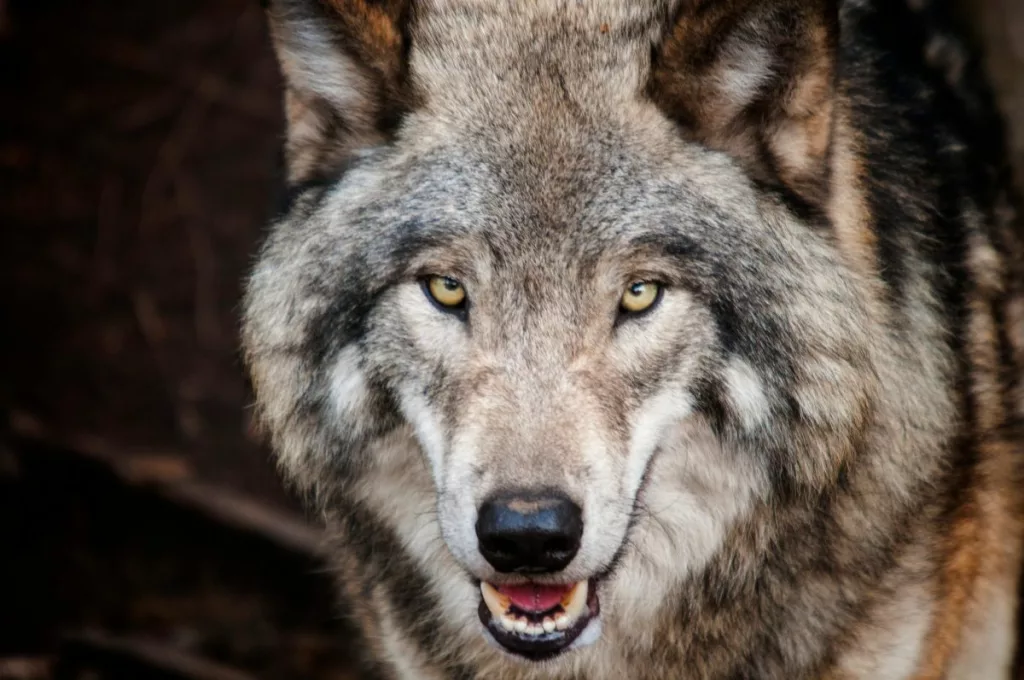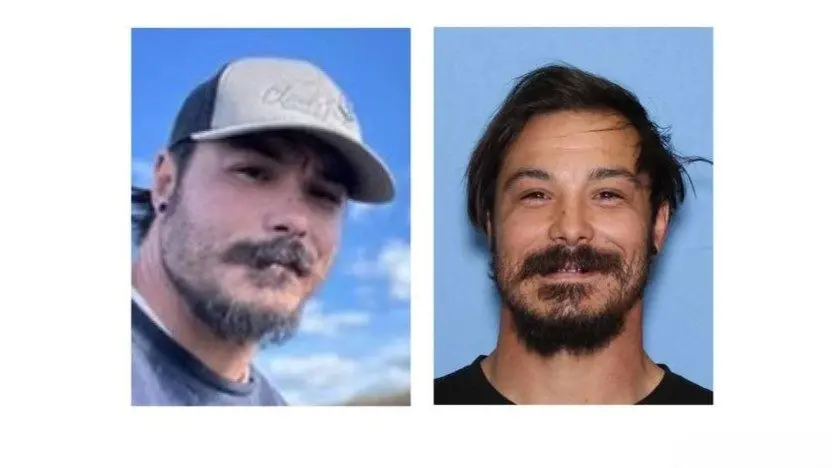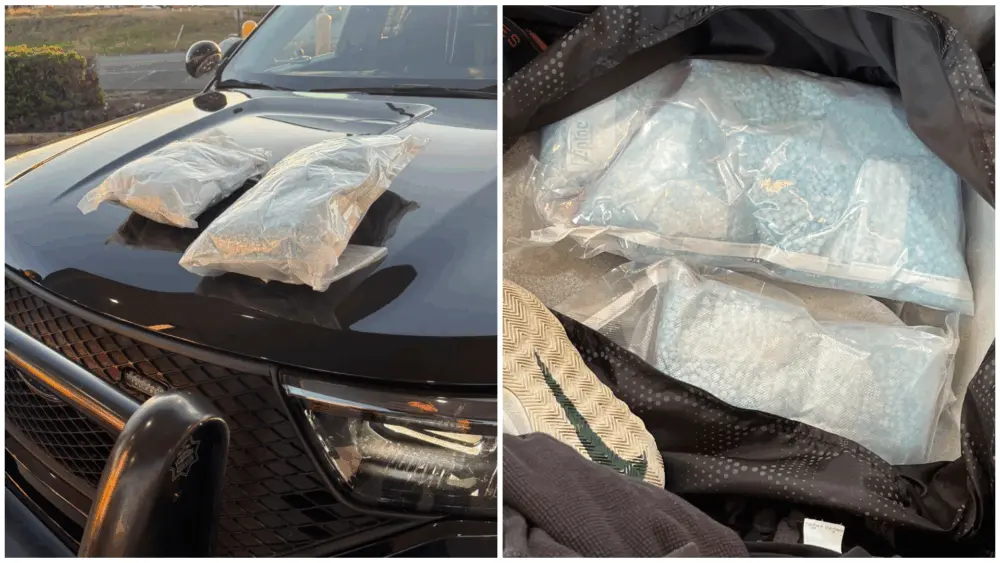REPUBLIC, WA – The Washington Department of Fish & Wildlife “lethally removed” an adult male wolf from the Togo pack territory in northeast Washington’s Ferry County this week.
WDFW approved the kill after three attacks on livestock on two different producer properties within a 14-day period earlier in July.
Kathy McKay of K-Diamond-K Guest Ranch told The Center Square the wolves have decimated her ranch’s animals over the last decade.
“I would say we’ve lost over 100 over the last 10 years of our pets. Our horses, donkeys, alpaca, pigs, our cart pony, my milk cow, eight horses, dozens of cattle, and baby calves. It’s devastating,” she explained. “They’re eating us alive, literally.”
McKay, who operates a 1,600-acre guest ranch 125 miles North of Spokane in Eastern Washington, said the wolves have significantly impacted her business.
“The horses, when they watch their pasture mates tortured and killed and chased, they’re a little more skittish and uneasy and less safe to ride for the guests,” she said. “The wolves come in waves, and there’s the lack of sleep and just trying to protect our livelihood and all our animals.”
Shubh Bhattacharjee, WDFW’s wolf and grizzly bear policy lead, told The Center Square producers who suffered recent attacks on livestock had exhausted other means of dealing with the wolves.
“We found that a lot of human presence from the producer side, like their family members, their ranch hands, their employed cowboys, had already tried to look after those cattle, and still the wolves managed to kill them and injure them,” he said. “So, we decided that we needed lethal removal, and accordingly, the director approved the removal of one or two individuals.”
He explained that ranchers have the right to lethally remove a wolf caught in the act of attacking livestock.
Dr. Francisco Santiago-Ávila is the science and advocacy director for Washington Wildlife First. He told The Center Square that his organization opposes any wolf kills, especially since wolves are still considered an endangered species.
“It’s always unfortunate when a wolf has to be killed, especially because we have no evidence that wolf kills work for mitigating these types of conflicts with producers,” he said.
Washington Wildlife First believes producers and ranchers locating in corners of the state where wolves are repopulating creates a no-win situation.
“So, continuing to allow that kind of use of public lands is basically only leading to the destruction of wolves and wolf packs. So, we really need an honest conversation about what coexistence requires in terms of sharing the landscape and where it is simply not feasible,” Santiago-Ávila said. “Producers care about their animals and owners care about their pets, but they certainly live in areas where there needs to be some recognition of the risk that they’re facing living alongside these animals, right?”
Sen. Shelly Short, R-Addy, whose district includes Ferry County, where the wolf kill took place, told The Center Square WDFW should take out more wolves.
“I know that this is a touchy subject and we’ve had a lot of groups that we continue to work with, but these are chronic conflict areas, and so that’s the frustration for me,” she said. “I know there are a couple of ranching families that got hit by wolves as soon as they started letting their cows out for grazing season; within days, they started having attacks. I’m grateful that they took action and it was decisive, but is it enough?”
Short said her hope is to fairly compensate ranchers and producers losing livestock and pets to wolves.
“I had a bill last year to work on the indirect compensation,” she noted. “Really, frankly, I think it’s the state’s responsibility. I don’t like spending taxpayer dollars when we don’t have to, but I think these are the state’s wolves and they’re here, and my ranchers in my community shouldn’t bear that entire burden.”
McKay credits tribal members from the Colville Reservation for taking out wolves responsible for depredation.
“The tribe has helped us immensely,” she said. “The tribe realizes the depletion of their deer population and the wolves are taking a number of them, so we’re blessed with having the tribe as a neighbor to help us.”
As of Dec. 31, 2024, WDFW and tribes have counted 230 wolves in 43 packs in Washington. Eighteen of these packs were successful breeding pairs. These numbers are comparable with the previous year’s count of 254 wolves in 42 packs and 24 breeding pairs.
Historically, gray wolves were common throughout much of Washington but were all but wiped out by the 1930s. In 2008, Washington wildlife managers documented the state’s first breeding wolf pack in modern times, and wolves have recovered in large numbers since, to the point that WDFW and its commission have differing opinions on whether to delist the gray wolf status from “endangered” to “protected.”
From McKay’s perspective, protecting the wolves has been given too much emphasis at the expense of protecting livestock and livelihoods.
“I’ve rescued and saved one of our little donkeys that got badly injured the same night as its best friend got killed,” she recalled. “And I doctored it for three weeks only to have the wolves come back and kill it. They just eat them alive. Cougars and bears are a little more kind, but they [wolves] just chase them till they’re tired and … the thoughts of how they are killed … there’s blood all over the field.”
Staci Lehman, communications manager at WDFW, told The Center Square that those interested in participating in the ongoing discussion about wolf depredation can apply to join the next Wolf Advisory Group.
“We are opening our wolf advisory group recruitment,” she said. “They generally meet about four times a year, and it’s a group of people who advise the department on anything to do with wolf management in Washington.”
McKay said that until people witness the gruesome result of a wolf attack on livestock, they can’t understand what her family is up against.
“Last fall, they got my Scottish Highlander [cow] and her calf, and then a horse, a big paint mare,” she said. “Just blood, everywhere. The poor big horse probably suffered the most because of her size. She was a healthy big mare, but they found her and, I mean, the blood was probably, I’d say like two or three football fields in our meadow, and so they probably, chased her for a while, and there’s just a struggle and marks from her feet struggling to get up and then she’s just bleeding out slowly. The next night, I’ve got a picture of six of them just eating on her.”
Lehman said WDFW has had nine documented livestock depredations so far this year and five wolf kills, including this week’s. That does not include the number of wolves taken out by ranchers, producers, or tribal members that are not reported to WDFW.
Short said many ranchers in her district also don’t report their livestock losses.
“My ranchers just want to be able to continue their livelihood, and there are some that will just, they will never [report livestock losses],” she said. “They don’t believe that they should seek state funding. But we’ve got the next generation that wants to take over from their parents and yet they’re finding it increasingly hard to do that as we’ve just seen our livestock industry whittled down, and in large part it’s because of this issue.”





